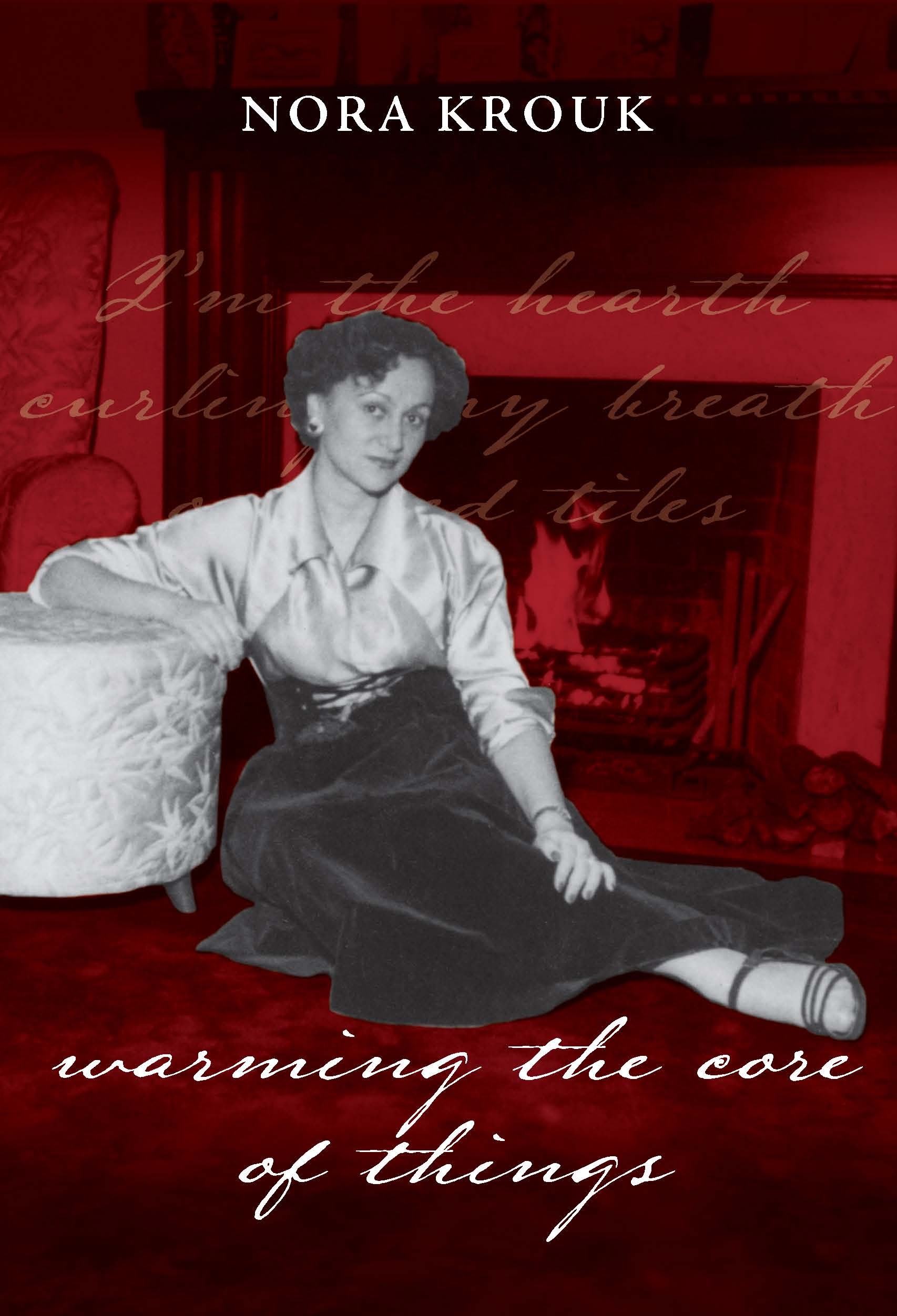 Reading Nora Krouk’s book, Warming the Core of Things, is akin to discovering a long-lost grandmother who invites you to sit by the fire and listen to her wondrous fairytales. The best bit, though, in Krouk’s case, is that these fairytales are all true and sound more like confessional journal entries than metaphorical narratives. This storyteller is candid about her love life and friendships, as well as her experiences of trauma and loss. As you follow the lilt of Krouk’s poetic voice, you’ll find yourself immersed in her multi-lingual, multi-cultural past, leaping from Shanghai to Russia to Hong Kong and then (eyes wide open!) back to a present-day Sydney presented in the hyperreal technicolour of jacaranda and jasmine blossoms.
Reading Nora Krouk’s book, Warming the Core of Things, is akin to discovering a long-lost grandmother who invites you to sit by the fire and listen to her wondrous fairytales. The best bit, though, in Krouk’s case, is that these fairytales are all true and sound more like confessional journal entries than metaphorical narratives. This storyteller is candid about her love life and friendships, as well as her experiences of trauma and loss. As you follow the lilt of Krouk’s poetic voice, you’ll find yourself immersed in her multi-lingual, multi-cultural past, leaping from Shanghai to Russia to Hong Kong and then (eyes wide open!) back to a present-day Sydney presented in the hyperreal technicolour of jacaranda and jasmine blossoms.
Nora Ephron famously remarked that ‘everything is copy’, a philosophy enacted by Krouk as she eagerly mines every aspect of her personal life for poetic material. Divided into the three sections ‘In Memoriam’, ‘Renewals’ and ‘Transitions’, the poems familiarise the reader with intimate details of Krouk’s family, friends and artistic community. Her husband, Efim (nicknamed Fima) died in 2008, and he is mourned in the book’s opening poem. Efim then reappears in several other poems, addressed in second person, referred to in third person, and described as lover, adversary, geriatric patient, master, even bird and baby. Krouk delights in mixing personal pronouns and sometimes even deletes them entirely, so that her poems resemble matryoshka dolls – the nested layers of past, present and future personas of the people in her life.
Krouk writes with a freedom of form that’s thrilling in its unpredictability. She delights in the physicality of her lines: shortening, lengthening and indenting them when and where the impulse takes her. Capitalisation and punctuation are fluid; ellipses, exclamation marks, chunks of italicised quotes in foreign languages, and asterisked end-notes are all fair game. Rhyme appears unexpectedly, here and there, like brightly coloured confetti. Blank spaces appear often, some small and others sprawling across the page, resembling language itself in the mystery they create. To read Krouk for the first time is to be both breathless and super-oxygenated at once.
Krouk’s poem, ‘Skies will be luminous’, contains the transliterated Russian phrase groost radosty, and an asterisk points the reader to the footnoted translation, ‘Sadness of joy’. It is this sadness of joy which pervades Krouk’s poetry, as a fire in a hearth warms ‘the core of things’. This is poetry that embraces the multitudes of experiences in a long, rich lifetime as it continues to overflow its own (many) languages.
Despite having a Bachelor of Arts in Literature, Eleanor Smagarinsky only discovered the joy in poetry after studying under Professor Al Filreis in his MOOC called ModPo (UPenn). In the words of Gertrude Stein, ‘The difference is spreading’.
